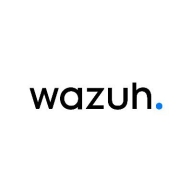

Wazuh and Netsurion compete in the cybersecurity space, with Wazuh noted for its open-source flexibility and Netsurion for its managed security services. Netsurion has an upper hand due to its comprehensive managed services, which appeal to businesses needing continuous security monitoring.
Features: Wazuh offers a robust MITRE ATT&CK correlation, flexibility in various environments, and comprehensive SIEM capabilities. Its open-source nature ensures affordability for small to medium businesses. Netsurion excels with managed security services, delivering continuous threat intelligence, monitoring, and effective response capabilities, which are beneficial for businesses lacking in-house security expertise.
Room for Improvement: Wazuh could improve upon its deployment ease and scalability to better serve larger enterprises, and address the cumbersome configuration highlighted by some users. Netsurion's interface usability and real-time alert management need enhancements, alongside better integration with cloud platforms and communication within reports.
Ease of Deployment and Customer Service: Wazuh, as an open-source platform, relies heavily on community support for deployment, which can be challenging for users. Netsurion, on the other hand, offers seamless deployment with excellent customer service, including ongoing monitoring and technical assistance, which is appealing for businesses preferring a managed support approach.
Pricing and ROI: Wazuh is a cost-effective option due to its lack of licensing fees, fostering significant ROI for smaller businesses conscious of budget constraints. However, the resources needed for its deployment can increase the overall cost of ownership. Netsurion’s higher pricing aligns with its substantial managed services and support, providing an advantage for organizations seeking a fully managed security solution.
I have seen value in security cost savings with Wazuh, as using proprietary EDR versions could save us substantial money.
They responded quickly, which was crucial as I was on a time constraint.
The documentation is good and provides clear instructions, though it's targeted at those with technical backgrounds.
We use the open-source version of Wazuh, which does not provide paid support.
It can accommodate thousands of endpoints on one instance, and multiple instances can run for different clients.
Currently, I don't see any limitations in terms of scalability as Wazuh can still connect many endpoints.
Scalability depends on the configuration and the infrastructure resources like compute and memory we allocate.
The stability of Wazuh is strong, with no issues stemming from the solution itself.
The indexer frequently times out, requiring system restarts.
The stability of Wazuh is largely dependent on maintenance.
Machine learning is needed along with understanding user behavior and behavioral patterns.
I think Wazuh should improve by introducing AI functionalities, as it would be beneficial to see AI incorporated in the threat hunting and detection functionalities.
The integration modules are insufficiently developed, necessitating the creation of custom integration solutions using tools like Logstash and PubSub.
Wazuh is completely free of charge.
I would definitely recommend Wazuh, especially considering Fortinet's licensing model which is confusing and overpriced in my opinion.
Wazuh is free to use, but there are licensing fees for third parties.
The fact that it is open source means it is always being expanded, which is beneficial for customizing solutions for individual client requests.
With this open source tool, organizations can establish their own customized setup.
The system allows us to monitor endpoints effectively and collect security data that can be utilized across other platforms such as SOAR.
| Product | Market Share (%) |
|---|---|
| Wazuh | 9.3% |
| Netsurion | 0.5% |
| Other | 90.2% |


| Company Size | Count |
|---|---|
| Small Business | 10 |
| Midsize Enterprise | 7 |
| Large Enterprise | 7 |
| Company Size | Count |
|---|---|
| Small Business | 26 |
| Midsize Enterprise | 15 |
| Large Enterprise | 8 |
Netsurion offers robust SIEM capabilities enhanced by managed services, facilitating efficient threat identification and response with real-time alerts and comprehensive reporting.
Netsurion stands out for its integration of SIEM, IDS, and vulnerability management. Its real-time threat alerts and dashboards enhance user response capabilities. With centralized logging from Windows, Linux, Cisco devices, firewalls, and Active Directory, Netsurion enables effective compliance support for HIPAA and PCI standards. Managed Threat Protection with the embedded MITRE ATT&CK Framework enhances threat intelligence, while its evolving interface aims to improve user interactions. However, some users find deployment and searching challenging, pointing to areas for improvement.
What are Netsurion's key features?Netsurion is frequently implemented in industries requiring comprehensive security monitoring and compliance, such as healthcare and finance. It aids businesses in consolidating security efforts, offering insights into user activities and system changes, an asset for companies lacking substantial internal resources.
Wazuh offers comprehensive security features like MITRE ATT&CK correlation, log monitoring, and cloud-native infrastructure. It ensures compliance and provides intrusion detection with high scalability and open-source flexibility, ideal for businesses seeking robust SIEM capabilities.
Wazuh stands out in security information and event management by providing efficient log aggregation, vulnerability scanning, and event correlation against MITRE ATT&CK. Its capability to integrate seamlessly with environments, manage compliance, and monitor files makes it suitable for cloud-native infrastructures and financial sectors. Despite its technical support needing enhancement and opportunities for improving AI integration and threat intelligence, its open-source nature and cost-effectiveness make it appealing. Users can leverage custom dashboards powered by Elasticsearch for precise data analysis, even though there is a desire for a more user-friendly interface and better enterprise solution integration. Deployment may be complex, but its features contribute significantly to fortified security postures.
What are the essential features of Wazuh?Industries like finance and cloud infrastructure heavily utilize Wazuh for its security strengths. By monitoring endpoints and ensuring compliance with frameworks, companies can improve security posture and swiftly detect anomalies. The platform's focus on event correlation and alerts for security incidents is particularly beneficial.
We monitor all Security Information and Event Management (SIEM) reviews to prevent fraudulent reviews and keep review quality high. We do not post reviews by company employees or direct competitors. We validate each review for authenticity via cross-reference with LinkedIn, and personal follow-up with the reviewer when necessary.